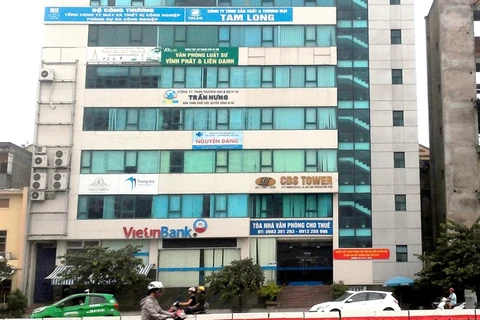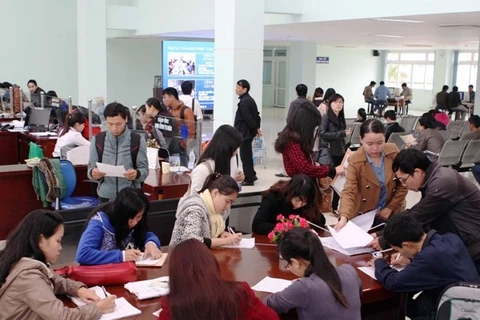HCM City (VNA) – After announcing plans to expand its presence in Singapore, co-working space provider WeWork set to open two new locations in Vietnam before the end of the year, according to Nikkei Asian Review.
The two new WeWork locations will be in Ho Chi Minh City, one at Sonatus in Ben Nghe ward, District 1, and the other at Lim Tower 3 next February, a company spokesperson said.
WeWork has developed a strong presence in Southeast Asia since it opened the first location in Singapore in 2017.
It now has footprints in Vietnam, Singapore, Indonesia, Malaysia, Thailand, and the Philippines.
HCM City has rapidly become a major business hub in Southeast Asia, creating strong demand for WeWork’s collaborative spaces.
The company's proposed Southeast Asia expansion comes against the backdrop of an abandoned initial public offering due to investor concerns that its valuation was over-inflated and a 9.5-billion USD bailout by investor SoftBank Group.
The rescue package from SoftBank, which includes 5 billion USD in new financing, offered a lifeline to WeWork parent We Co., which was set to run out of money this month. The company has been on a cost-cutting spree after it pulled its IPO paperwork in September and was said to be considering curbing its expansion in China.
Shared workplaces in Vietnam have grown on the back of a boom in the local startup ecosystem. The market is witnessing the rise of local brands such as Dreamplex, Toong (backed by Indochina Capital), CirCo (backed by East Ventures), COGO and others.
Northstar managing director Bert Kwan recently confirmed the private equity firm's investment in co-working space provider UPGen, which is understood to be about $15 million.
UPGen, formerly known as Up, currently operates 13 workplaces in Hanoi and Ho Chi Minh City in Vietnam and plans to expand its network to Bangkok in Thailand and Kuala Lumpur in Malaysia this year.
Meanwhile, Toong has 14 locations, including two in Laos and Cambodia with a total area of more than 20,000sq.m.
The first WeWork co-working space in Vietnam opened in HCM City on March 13.
Covering 5,000sq.m in the E Town Centre, District 4, the office can accommodate 1,000 customers in four floors ranging from freelancers to bigger enterprises.
“With Vietnam’s rapid economic growth, we see immense business potential,” Turochas T Faud, managing director of WeWork Southeast Asia, said.
The company said since its first coming to Southeast Asia in December 2017, it has expanded to 18 locations, with more than 13,000 customers.
Founded in 2010 in the US, it has 425 offices in 100 cities and 27 countries.
Over 45,000 companies use WeWork with member companies including Dell, KPMG, GE, Microsoft, and Samsung.
In recent years, co-working operators have seen Vietnam as a hot market. UK based Workthere, a website listing platform and brokerage services, has entered the Vietnamese market to help businesses find flexible, co-working and serviced office spaces in a country where co-working has expanded rapidly.
Like many others, Workthere sees the potential of the market. Last year, there were about 60 co-working spaces in Vietnam. Between 2018 and 2019, realty firm Savills reported the supply of co-working space increased by 64 per cent.
The rise in the number of co-working locations across Vietnam has been driven by the growth of start-ups. As more than 30 percent of the population are under 34 years old in Vietnam, co-working spaces offering a unique work environment can help attract talent to join organisations.
Nguyen Hoai An, director of Consultancy Services at CBRE Vietnam, said as millenials account for 91 percent of clients in local co-working spaces, much higher than the global average of 67 percent, more firms are bound to join the market to meet demand.
It also meets the need for cost-effective spaces of small- to medium-sized (SMEs), which account for more than 90 percent of local enterprises./.
























